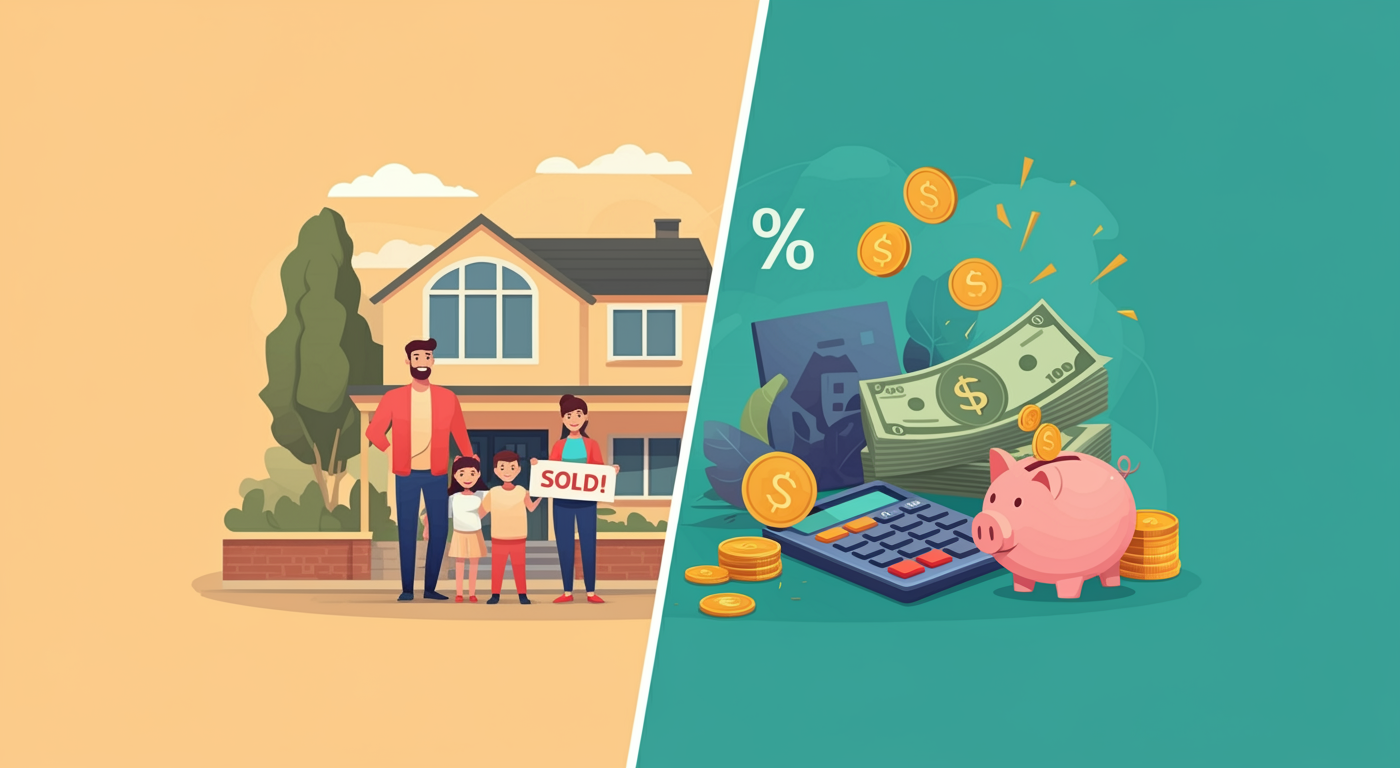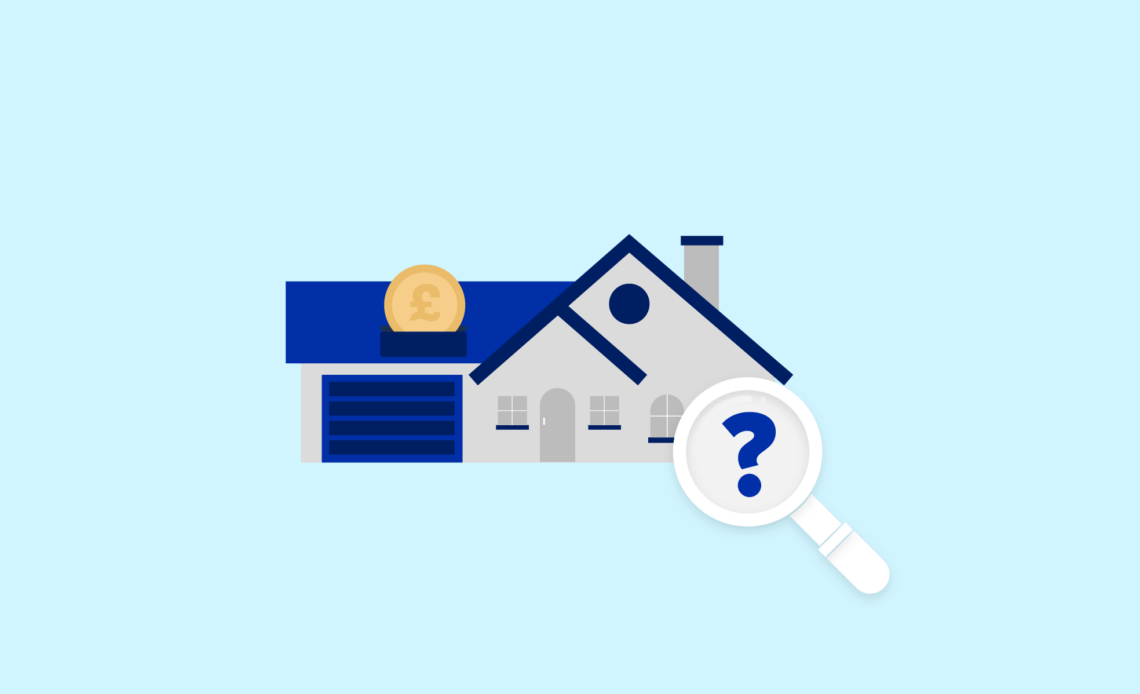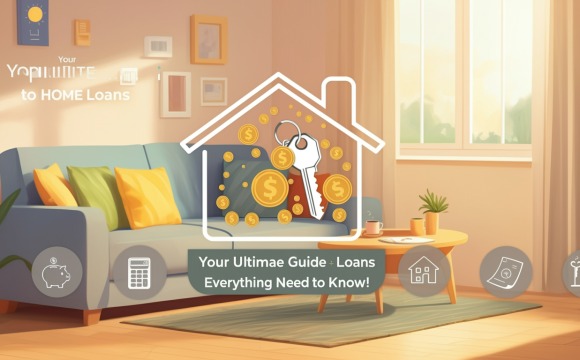Introduction: Unlocking the Door to Home Loan Savings
Navigating the world of home loans can feel a bit like trying to find your way out of an escape room—lots of options, and a few dead ends along the way. Securing the best interest rates on your mortgage is crucial; even a slight difference can save you thousands over the life of your loan. This article will guide you through the maze of home loans, offering practical tips and tricks laced with a bit of humor, so you can unlock significant savings. Let’s get started!
Understanding Home Loans: The Basics
What Exactly is a Home Loan, Anyway?
A home loan, also known as a mortgage, is a type of loan specifically intended for purchasing real estate. You borrow money from a lender—typically a bank or credit union—and pledge your property as collateral. If you fail to repay, they get to reclaim your home. Yikes!
Different Types of Home Loans: Picking Your Poison
- Fixed-Rate Mortgages: The interest rate remains the same throughout the life of the loan. This offers stability but might be higher than an adjustable rate at the start.
- Adjustable-Rate Mortgages (ARMs): After an initial fixed-rate period, the interest rate fluctuates based on market conditions. These can lead to lower initial payments but come with risks.
- FHA Loans: Government-backed loans designed for low-to-moderate-income borrowers, requiring lower minimum down payments and credit scores.
- VA Loans: These are for veterans and active military and often come with favorable terms, like no down payment.
Why Interest Rates Matter: More Than Just a Number
How Interest Rates Impact Your Monthly Budget
The interest rate determines how much you’ll pay each month and ultimately how much your home will cost in total. A lower rate can mean hundreds of dollars back in your pocket each month—for things like pizza and Netflix. Who wouldn’t want that?
The Long-Term Costs of High Rates
A mere 1% increase in your interest rate can add tens of thousands to the total amount you pay over 30 years. Think of it like getting an overpriced latte every day—it adds up fast!
Your Credit Score: The Key to Lower Rates
What’s in a Credit Score?
Your credit score is a three-digit number that lenders use to assess your creditworthiness. It’s like the report card for how well you handle money. Generally, the higher your score, the lower your interest rate will be.
Ways to Improve Your Credit Score Quickly
- Pay off any existing debts.
- Make timely payments on all your bills.
- Don’t open new credit lines right before applying for a home loan.
- Check for errors on your credit report and dispute them if necessary.
Common Credit Score Myths Debunked
It’s a common belief that checking your credit score hurts it—this is false! Checking your own score is considered a soft inquiry and won’t impact it at all.
Market Awareness: Timing is Everything
Understanding Economic Trends and Their Impact
Interest rates are influenced by economic indicators like inflation, employment statistics, and the actions of the Federal Reserve. Keeping an eye on these can help you time your loan for maximum savings.
How to Spot the Best Time to Buy
Watch economic news, follow trends, and perhaps keep a crystal ball handy (just kidding!). In general, the best times to secure low rates often follow economic downturns, where lenders are eager to attract borrowers.
Shopping Around: Don’t Settle for the First Offer
Why Comparing Lenders is Like Dating
You wouldn’t marry the first person you date without checking your compatibility! Similarly, shopping around can reveal better terms and rates that suit your financial picture.
Questions to Ask When You’re Comparing Rates
- What is the interest rate and APR?
- Are there fees associated with the loan?
- What is the process for locking in a rate?
- How responsive is the lender to your inquiries?
Utilizing Online Tools for Rate Comparison
Websites like Zillow and LendingTree allow you to compare rates from multiple lenders easily. Just remember to read the fine print—those pesky fees can add up!
The Role of Down Payments: More Than Just a Trendy Term
How the Size of Your Down Payment Affects Your Rate
Typically, a larger down payment can lead to better rates. This is because you’re minimizing the lender’s risk. Not to mention, it lowers your monthly payment!
Creative Ways to Save for a Down Payment
- Open a savings account and automate your savings.
- Look into down payment assistance programs.
- Consider a side gig (hello, cat-sitting or delivery driving!).
Loan Pre-Approval: Your Secret Weapon
The Benefits of Getting Pre-Approved
Being pre-approved not only gives you a clear idea of how much you can borrow, but it also shows sellers you’re serious. This can give you an edge in a competitive market.
How to Prepare for the Pre-Approval Process
Gather your financial documents, including your income statements, tax returns, and a list of debts. The more organized you are, the smoother the process will be—and less stress equals happier home-buying!
Locking in Your Rate: Timing is Everything
What It Means to Lock in Your Rate
A rate lock guarantees a specific interest rate for a certain period, which can protect you from rising rates while you’re still in the home-buying process.
Pros and Cons of Rate Locks
Pros: You get certainty and peace of mind.
Cons: If rates drop, you may miss out on better deals unless you have a float-down option.
Negotiating Like a Pro: Don’t Be Afraid to Ask
How to Approach Your Lender for Better Rates
Be upfront about what you’re looking for. Highlight your strengths, such as your excellent credit history or significant down payment.
Tips for Effective Negotiation
- Be polite but firm.
- Use research to back up your ideas.
- Remember, the worst they can say is no—then you can just charm them with your dazzling personality!
The Pitfalls of Home Loans: What to Avoid
Common Mistakes That Cost You Money
- Not Reading the Fine Print: Always review all terms and conditions. Ignorance isn’t bliss in the lending world!
- Skipping Loan Comparisons: You wouldn’t buy a car without test-driving it first, right?
- Failing to Budget for Closing Costs: These can catch first-time homebuyers off guard.
Red Flags When Choosing a Lender
- Unclear fee structures.
- Pushy sales tactics.
- Lack of transparency about the loan process.
Using a Mortgage Broker: Is It Worth It?
What a Broker Can Offer You
A mortgage broker can help you find the best rates and navigate the lending process, negotiating on your behalf with multiple lenders.
When to Consider Going the Broker Route
If you’re unsure where to start or have unique financial situations, a broker can streamline the process and save you headaches down the road.
Additional Costs: Beyond the Interest Rate
Understanding Closing Costs and Fees
Closing costs can include appraisal fees, title insurance, and origination fees, typically ranging from 2% to 5% of the loan amount. Plan ahead to avoid any surprises!
Avoiding Surprises at the Last Minute
Ask your lender for a detailed worksheet of all costs involved. Transparency is key, so you don’t find yourself emptying your wallet right before the big day.
Government Programs: Don’t Miss Out!
Exploring Government-Funded Home Loan Options
Programs like FHA and VA loans make homeownership accessible to many. They often come with lower down payments and reduced fees, making them appealing options.
How to Qualify for Special Programs
Research eligibility requirements thoroughly and gather necessary documentation ahead of time to ensure a smooth application process.
Refinancing: A Second Chance at Better Rates
What You Need to Know About Refinancing
Refinancing involves replacing your existing mortgage with a new one, ideally at a lower rate. This can lead to significant savings.
Indicators That It Might Be Time to Refi
- You qualify for a lower interest rate.
- Your credit score has improved significantly.
- You want to switch from an ARM to a fixed-rate mortgage.
Pro Tips: Extra Tricks for Saving Big
Using Technology to Your Advantage
Various apps and online platforms can help manage your mortgage payments, compare rates, or even keep track of your credit score. Knowledge is power!
Saving Throughout the Home Buying Process
- Stick to your budget.
- Avoid unnecessary purchases while you are in the home-buying zone.
- Find ways to reduce monthly expenses to save more for your down payment.
Personal Stories: Lessons Learned from Homebuyers
Throughout this process, you won’t be the first or the last to trip over the hurdles of home buying. Many buyers have funny and sincere tales about their journeys—like the couple who mistook their loan officer for a dating service representative. Why? Because they were so eager to lock down a great rate and a great home!
Conclusion: Your Path to the Best Home Loan Rates
Securing the best home loan rates takes some effort, knowledge, and a bit of humor along the way. By understanding your credit, comparing lenders, knowing when to lock in rates, and avoiding common pitfalls, you’ll be well on your way to achieving incredible savings. Remember, the journey to homeownership should be joyful, not stressful!
Call to Action: Share Your Own Tips & Experiences!
Now that you’re armed with knowledge, go forth and conquer the home loan market! Have you got your own tips or experiences? We’d love to hear from you, so share away, and let’s build a community of savvy homebuyers together!





